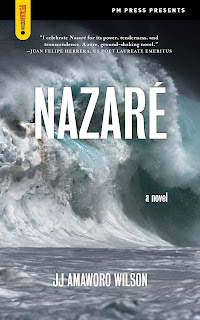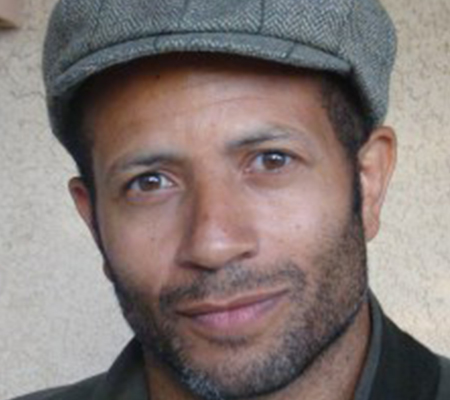By Deborah Kalb
https://deborahkalbbooks.blogspot.com/2021/10/q-with-jj-amaworo-wilson.html
October 27th, 2021
JJ Amaworo Wilson is the author of the new novel Nazaré. His other books include the novel Damnificados, and his work has appeared in a variety of publications, including African American Journal and Justice Journal. He is the writer-in-residence at Western New Mexico University, and he lives in Silver City, New Mexico.
Q: You note that you were inspired to write Nazaré by the Arab Spring. How did that movement lead you to write this novel?
A: I’d lived in Egypt in my 20s and walked in Midan Tahrir, the epicenter of the movement in Cairo, almost daily.
When the Arab Spring arrived, I was stunned that ordinary people were forcing change against the greatest of odds. Mubarak had been in power for 40 years, Gaddafi 34, Zine El Abidine Ben Ali 24. It reminded me of Mandela’s line: “It always seems impossible, until it’s done.”
Then I started mentally linking the Arab Spring to other revolutions and rebellions: Fidel Castro and los barbudos swooping down from the Sierra Maestra to take Havana; Tupac Amaru at his execution saying “I will return and I will be millions;” Toussaint L’Ouverture routing the French in Haiti.
It felt like an epochal moment in world history. From a writer’s perspective, I just wanted to transform the people’s energy into a piece of fiction that was as beautiful and wise as the rebellions.
Q: What did you see as the right balance between humor and tragedy as you wrote the book?
A: Tragedy is a given. Just look at the state of human affairs. We’re a car wreck.

But life is also comic, at least until the calamity of the fifth act. There’s humor everywhere, but as a writer you pick your moments. You don’t want to deflate tension by going for laughs. Ultimately, the goal is for the humor to emerge naturally from the situation and characters.
Q: Did you know how the novel would end before you started writing it, or did you make many changes along the way?
A: I knew it would end with the wave called Nazaré. That’s the novel’s motif. The rest was more or less improvised, like the revolution it describes. Except I did about a dozen drafts. Revolutionaries usually only get one.
Q: The writer Denise Chávez said of the book, “Its mighty and potent message is simple and true: evil will ever be defeated by the goodness of great souls.” What do you think of that assessment, and what do you hope readers take away from the story?
A: Denise is right. The Syrian composer Malek Jandali once said: “The power of the people is stronger than the people in power.” That’s critical to this novel.
But a novelist is an entertainer. I hope readers enjoy the story, first and foremost. If they find some eternal truths there, or if it leads them to think about how to live with courage and dignity in an unjust world, that’s a bonus.
Q: What are you working on now?
A: Something connected with refugees. We’re seeing great swathes of humanity moving from one place to another because of wars, oppression, and environmental devastation. We’re watching wealthy countries close their doors, turn their backs on their brothers and sisters. It’s a great subject to confront. The trick is to find the form.
Q: Anything else we should know?
A: Nazaré is a multilingual book. Characters slip into different languages and their names and the setting reflect a global outlook.
This is a reflection of my life experiences. I’m a German-born Anglo-Nigerian-American. My parents spoke five languages between them. I’ve lived in 11 countries and visited 70, and I speak four languages.
I’ve spent much of my adulthood in large polyglot cities. In London, you turn a corner and suddenly everyone’s speaking Portuguese. You cross a road and it’s Punjabi or Amharic or French. I find this linguistic richness alluring. Unsurprisingly, it’s found its way into my fiction.






